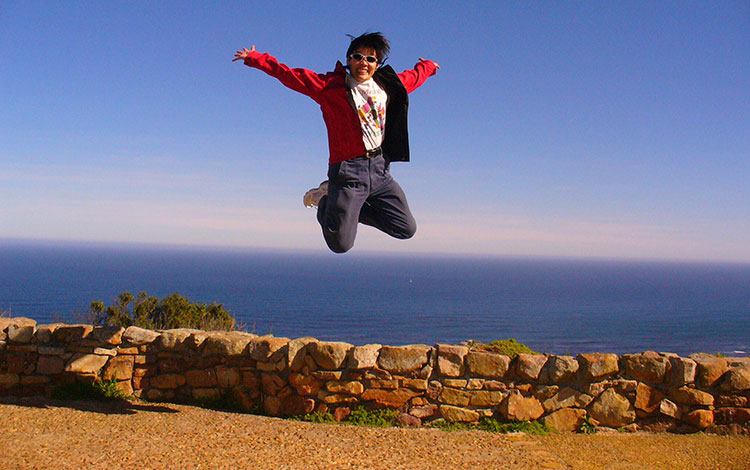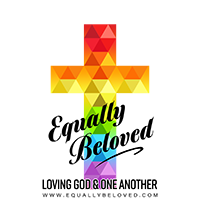
My name is Chua, I’m Chinese and I work in the sales line. Due to how I look, many people consider me a butch. I consider myself quite closeted as none of my relatives have asked about my sexuality and only a handful of my straight friends know I am lesbian.
Although I have been out in the community for some time, up until two years ago, I had always assumed that all lesbian relationships were of a butch/femme or androgynous/femme pairing – much like many typical straight relationships. I did not even know the meaning of commonly-used terms such as ‘pure les’ or ‘pl’ (i.e. a femme who likes another femme). Over the years, I realised that in reality, relationships are very complex – I recently learnt that a butch is in an intimate relationship with a transgender woman (male-to-female), and they are going to have a child together.
As for myself, I have been a Christian since I was in my 20s. I have always been interested in studying and applying Scripture to my life, so several years ago, I joined the Bible Study Fellowship (BSF). I have been attending the BSF’s classes for 7 years now. The BSF is an interdominational Bible study group that provides Bible study classes across the world and trains Christians for leadership. In Singapore, the BSF holds more than 20 Bible study classes in different churches for men, women and young adults. In the first year of my BSF class, the lecturer discussed a verse from Leviticus 18:22, which read:
“Thou shalt not lie with mankind, as with womankind: it is abomination.” (KJV); or, “You are not to have sexual relations with a male as you would with a woman. It’s detestable (ISV).”
Our lecturer was a kindred Chinese lady in her 50s. She mentioned that men who have sexual relations with men or women with women, i.e. homosexuals, were abominations and thus unacceptable. I hated the word ‘abomination’. I had read elsewhere that it meant something below the animals. I felt very upset and had a strong urge to walk out of her lecture, but I restrained myself as my brother-in-law’s sister was in the same lecture room, and I was not prepared to explain why I was so enraged by her description of homosexuals as abominations, given that I was not ‘out’ to them then.
I knew for a fact that my homosexuality was not an abomination. I could not, however, rationalise my anger nor find a valid rebuttal to my BSF lecturer’s interpretation of the Bible verse. Several years later, I stumbled upon and joined the Free Community Church’s (FCC) Bible study and self-help programme for queer and lesbian women. There, I learnt that Bible verses had to be read and understood in the broader context of the surrounding verses (or section of the Bible) and the historical and cultural context of the times in which it was written. For example, Leviticus 18:22 appeared directly after a verse forbidding child sacrifices to the pagan god Molech, after many other verses forbidding incestuous sex. Incestuous sex, child sacrifices and homosexual sex were common in the worship of Molech.
Elsewhere in the bible, male shrine prostitutes (who had sex with men) are specifically condemned. However, many verses of the Bible mis-translate the term ‘male shrine prostitutes’ as ‘homosexuals,’ ‘sodomites,’ or even ‘effeminate.’ For instance, The Living Bible (TLB) version of Deuteronomy 23:18 reads: “no prostitutes were permitted in Israel, either men or women; and you must not bring to the Lord any offering from the earnings of a prostitute or a homosexual, for both are detestable to your Lord your God.”
The FCC Bible study and self-help programme was very meaningful, but most importantly, I learnt that that God loves me no matter who or what I am, regardless of my sexuality, as I too am God’s creation, even if I am not straight.
I am still in the BSF Bible study class. Currently, I am in 2 BSF WhatsApp group chats and most of my classmates still take the view that homosexuality is unacceptable. They do not know that I am homosexual, but I believe that they do not have friends who are themselves homosexual or even transgender whom they can relate or talk to.
I have since ‘come out’ to a few of my closer friends from the BSF class. I shared with them that I am homosexual. I’ve found that since sharing with them about myself and my sexuality, these closer friends whom I ‘came out’ to are now more considerate in our WhatsApp group chats. For example, when other BSF friends post petitions against homosexuality, they do not petition against it, and it makes me feel happy and less excluded.
Recently, in a casual conversation with a straight Christian friend, she told me that she is fine with people who are homosexual, but she dislikes events such as Pink Dot as it ‘tempts and leads the young’ into homosexuality. From this casual conversation, I realised that many straight people do not understand LGBTQ people and events such as Pink Dot. LGBTQ people who are not accepted by their family or religious community may feel isolated and develop suicidal tendencies. Events such as Pink Dot are integral in helping those who feel different, by virtue of their sexuality, to know that there are others who are like them, and thus help them feel less ostracised.
As much as it is possible and safe to do so, I try to be more open with regard to my own homosexuality in hope that more people may recognise that despite the differences in our sexuality, we are essentially the same – i.e. humans. I hope that one day, all differences in terms of sexuality would not matter, just like the differences in the length of our fingers do not matter. I also hope that one day, I will gain full acceptance in society, including my Christian BSF study group, just like straight people.



